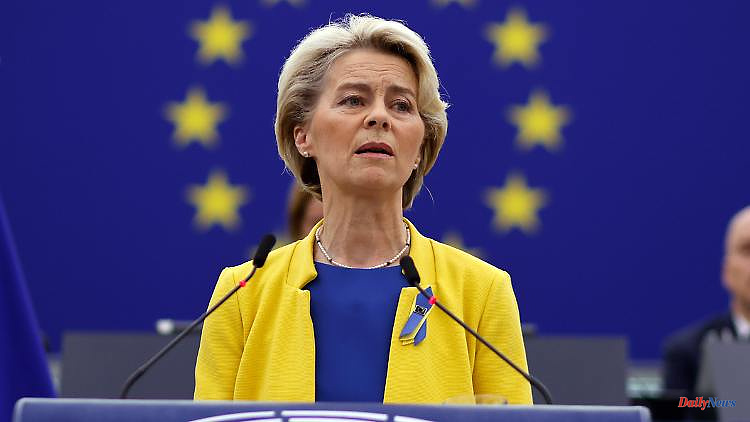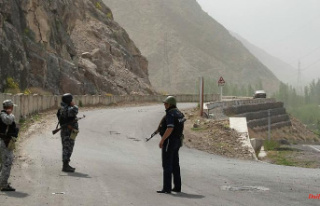The EU Commission wants to siphon off excessive profits from some energy producers by law and distribute them in the EU countries. Commission President von der Leyen calculated in her speech on the state of the EU with 140 billion euros. She also announces that she will spontaneously travel to Kyiv.
EU Commission President Ursula von der Leyen is certain that Ukraine can hold its own against Russia. Russian President Vladimir "Putin will fail, Ukraine and Europe will prevail," von der Leyen said in her State of the Union address to the European Parliament. She also announced that she would travel to Kyiv this Wednesday to meet President Volodymyr Zelensky. It will be about the question of how Ukraine will get access to the EU internal market, said von der Leyen. At the same time, she promised Ukraine emergency aid of 100 million euros to rebuild schools.
To relieve consumers, excessive profits from energy companies in the EU are to be skimmed off and redistributed in future. EU Commission President Ursula von der Leyen announced a proposed law against high energy prices in the Strasbourg European Parliament, which would affect both producers of renewable electricity and gas and oil companies. "Our proposal will bring more than 140 billion euros for the member states to cushion the emergency immediately," said von der Leyen.
According to von der Leyen, the proposed law stipulates that excessive profits from many electricity producers should be distributed to consumers in order to relieve them of the high costs. The price of electricity is currently being driven by the high price of gas, and producers of cheaper electricity - such as from the sun, wind, nuclear power or coal - can also sell it at the high prices. Companies that do not produce electricity from gas should give away part of these profits. According to a draft, revenue from 180 euros per megawatt hour should go to the state. Relief measures should be financed from this money. The federal government has supported similar measures.
According to von der Leyen, gas and oil companies should also make their contribution through a crisis levy. According to the draft, they should pay a solidarity levy of 33 percent on profits for the current year, which were 20 percent above the average for the past three years. Von der Leyen also announced measures to reduce the power consumption of the EU countries as a whole. According to the draft, power consumption at peak times should be reduced by at least five percent. The EU countries should create incentives for this.
Last Friday, the EU energy ministers also called on the Commission to submit proposals for a price cap for gas and for liquidity support for energy suppliers. Von der Leyen announced that measures will be developed that take into account the specifics of relationships with suppliers. On the second point, she said that the state aid framework would be changed in October to allow for guarantees. Work is also being done on a long-term reform of the electricity market. The ministers will meet again in Brussels on September 30th to then decide on the legislative proposals of the EU Commission.












